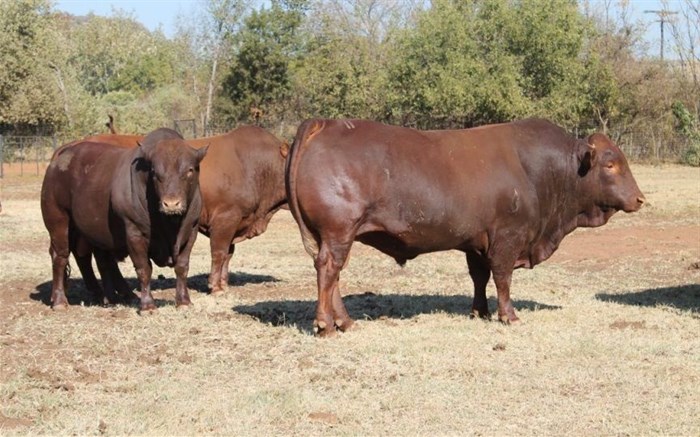
Maize and soybeans are key inputs in the livestock sector, hence I view an increase in their prices as a concern for the industry. The drier conditions also negatively affected the grazing veld in the western parts of the country, particularly the western Free State and North West provinces.
It was only in the last few days of December 2018 and early January 2019 that the aforementioned areas received a bit of rainfall that enabled some farmers to start planting, although the yields could be poor as the optimal planting windows closed way back around mid-December 2018, particularly for maize and soybeans. In the case of grazing veld, the improvement will most likely depend on the occurrence of rainfall in the coming weeks. The near-term prospects remain constructive, showing a possibility of showers in most summer rainfall areas.
Aside from the weather-related dynamics, on 08 January 2018, South Africa’s Department of Agriculture, Forestry and Fisheries informed us that there are positive laboratory results for Foot-and-mouth disease (FMD) in cattle in the Vhembe District of Limpopo – a province bordering Botswana, Zimbabwe and Mozambique. By end of last week, the scientists were still on the ground conducting further investigations to verify the results and determine the extent of the outbreak of FMD.
As a result of this, South Africa has temporarily lost its FMD-free status which might somewhat disrupt export markets for beef. In fact, it did not take long before, Botswana, Namibia and the Kingdom of eSwatini, amongst others, to announce the suspension of South African beef imports because of this outbreak.
This will present a challenge for the industry that has taken years to grow its export footprint. The South African beef industry has seen enormous growth in exports over the past couple of years, generating an estimated $144m in 2017, according to data from Trade Map. In terms of volumes, long-term trends show a sharp increase in overall beef exports, from 8.292 tonnes in 2001 to 31,888 tonnes in 2017. Frozen beef exports trebled from 4,740 tonnes in 2001 to 13,808 tonnes in 2017.
Meanwhile, fresh/chilled beef exports more than doubled over the same period, from 8 292 tonnes to 18 080 tonnes.
The top ten destinations for South African frozen beef exports include the continental markets (Lesotho, Mozambique, Angola, Mauritius, Swaziland and Egypt), the Far East region (Hong Kong, China and Vietnam), as well as the Middle East (United Arab Emirates). In terms of chilled/fresh beef, the continental markets (Swaziland, Mozambique, Lesotho, Namibia and Mauritius) featured prominently, followed by the Middle East (United Arab Emirates, Kuwait, Jordan and Qatar), as well as the Far East (China).
However, this notable progress is likely to be disrupted by the outbreak of the FMD. This will put pressure not only on cattle farmers (and the red meat industry) but it will also negatively impact South Africa’s agricultural trade balance. With that said, the overall financial impact on the industry is still unclear at this stage as the local authorities are still on the ground conducting further investigations on the extent of its spread.
Above all, aside from major policy debates such as land reform, the erratic weather conditions and frequent dry spells, this outbreak will be amongst the key factors that will weigh on the industry’s growth this year.
